Oil will seep to the surface and form tar pits, or on the ocean
form a small oil slick. These events are natural and occur every
day. However, we move large quantities of crude oil and nearly as
much in various products (gasoline, jet fuel, etc.) Some spillage due to transportation is going to occur. When it does there
are different approaches to cleaning the spill. It comes down to
three general approaches: Contain and remove, disperse with chemicals, or
do nothing (it will eventually disperse).
There are also "spills" as a result of war (First Gulf War), and from drilling, notable the Gulf of Mexico drilling disaster associated with BP's Deepwater Horizon operation.
Here is a good article (Tuscan Cuitizen) on how the spill was finally stopped.
After reading this page know how spills are treated and prevented.
 |
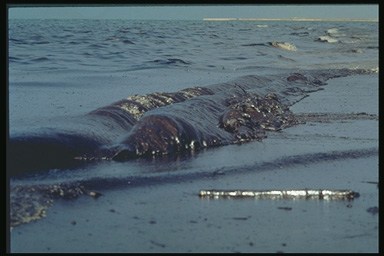 Here the oil comes close to shore where there is a concentration of wildlife
. Here the oil comes close to shore where there is a concentration of wildlife
. |
 |
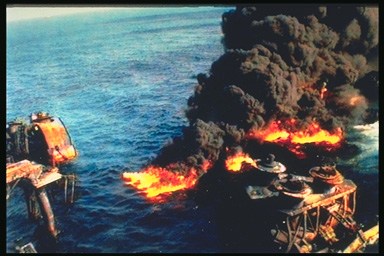
Spills can also occur at the drilling location. The oil business remains a dangerous occupation. |
 |
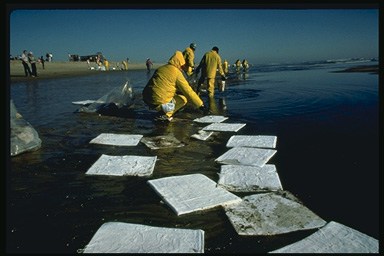 Here
man made absorbents are used to collect the oil then it is off
to a landfill or to a combustion site. Natural materials such
as feathers are also used (fur tends to be hard to obtain!) Here
man made absorbents are used to collect the oil then it is off
to a landfill or to a combustion site. Natural materials such
as feathers are also used (fur tends to be hard to obtain!) |
 |

Here a boom prevents the oil from spreading. Some of the booms
are even fire retardant. The skirt below the surface and the
floatation parts act as a physical barrier. Not as useful in
very rough seas. |
 |
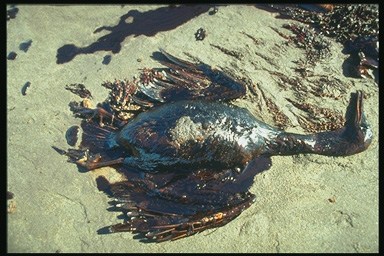 Birds
die for several reasons: drowning (the feathers absorb so
much oil the air is de placed resulting in loss of buoyancy),
ingesting oil (from preening to remove it), and from hypothermia. Birds
die for several reasons: drowning (the feathers absorb so
much oil the air is de placed resulting in loss of buoyancy),
ingesting oil (from preening to remove it), and from hypothermia. |
 |
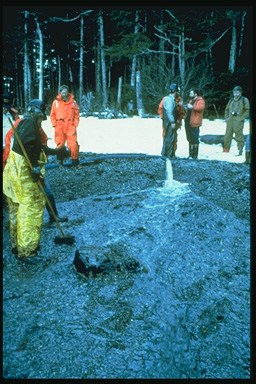
Cleanup tends to be person power intensive and very expensive.
The arguments comes down to which is cheaper cleanup or prevention?
That debate depends very much on the value you place on environments. |
 |
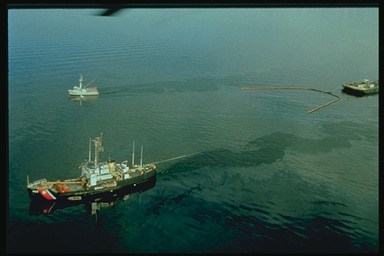 Here
the oil can be seen on the surface with booms being used to
contain the spill. Here
the oil can be seen on the surface with booms being used to
contain the spill. |
 |
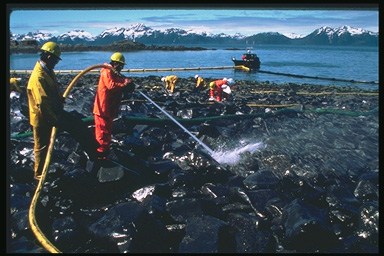
The cleanup on the shores of Prince William Sound. High pressure
hoses wash the oil from the beach into the water where it is
contained by a boom prior to removal. |
 |
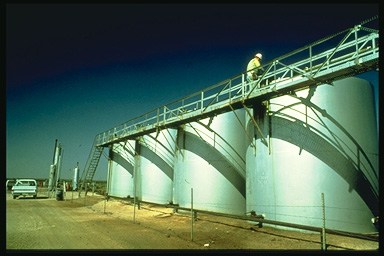 Not
only is crude oil stored but so are the products. Containment
wall prevent jet fuel, gasoline spills from leaving the storage
site should the containment vessel fail. Not
only is crude oil stored but so are the products. Containment
wall prevent jet fuel, gasoline spills from leaving the storage
site should the containment vessel fail. |
 |
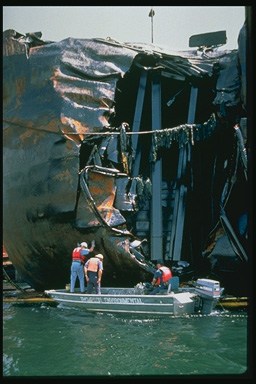
Double hulled tankers might have helped prevent an oil spill
in this case. Some collisions will produce spills even from
double hulled tankers. Which is safer, all your eggs
in few large baskets or many smaller baskets? |
 |
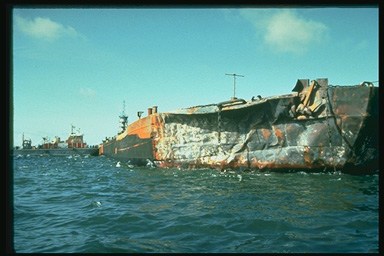 Shipping lanes are highly congested in
many oil exporting areas, collisions are best avoided, as a
tanker may require several miles to stop!
Shipping lanes are highly congested in
many oil exporting areas, collisions are best avoided, as a
tanker may require several miles to stop! |
 |
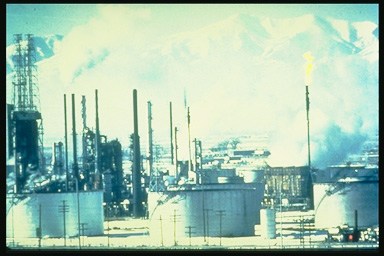
Fire at refineries and at storage sites are dangerous to the nearby residents. Containment walls should stop the fire from spreading |
 |
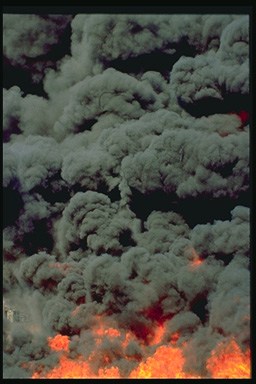
The fire will help reduce the water
pollution at this location but it will produce lots of air
pollution. In remote locations (out to sea) fire might be
the only choice. |
 |
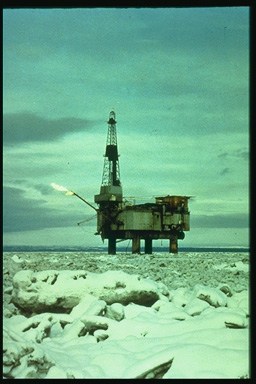
Some environments are more sensitive than others. Although there
is oil in the North Pole area no country owns the land/ice although
many maintain a presence there! (Including us Brits!) |

